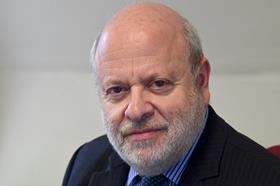Lawyers have a list of substantial problems with this government – what will change now that the prime minister has resigned? (The names here are likely to change over the coming days, as more declare and others are knocked out.)

Some of our problems arose from the prime minister’s specific character. He has not been alone in lawyer sledging - the repetition of allegations about lefty or activist lawyers – but he has led the way, and expanded the targets. So for a time he also tried to undermine the leader of the opposition by mocking his previous career as a lawyer (‘one brief one day, another brief the next day’, ‘more briefs than Calvin Klein’, that sort of thing.
Some abuse will presumably continue if, say, Priti Patel stands and wins. And, since anti-lawyer rhetoric is seen as part of a campaign against liberal metropolitan thinking, of which lefty lawyers are presumably a part, the success of a candidate like Kemi Badenoch (she is not alone), who has made a continuation of the culture wars a part of her pitch, will likely not stop the attacks on those whose clients oppose government policy through the courts.
What will not go away, though, are the deeper-seated accusations against lawyers as professional enablers. As we saw in the parliamentary discussions over SLAPPs (strategic lawsuits against public participation), these accusations come from both parties, from backbenchers and ministers. They are internationalised and widespread, coming also from organisations like the United Nations and the Organisation for Economic Development and Cooperation. Just last week, the European Commission issued a consultation to collect views from stakeholders on the role of enablers who contribute to tax evasion and aggressive tax planning. This broad criticism will go on for some years regardless of the party in government.
There has been a deeper concern from lawyers on the rule of law. It was presumably at least in part the prime minister’s apparent indifference to ethical standards which led to ministers and aides resigning in droves last week. We know that two independent advisors on ministerial interests resigned during his short premiership, and the post remains unfilled. Many lawyers have been concerned by proposed deliberate breaches of international law.
It went further with the incumbent, as witnessed by his initial refusal to bow to the inevitable last week, talking about his personal mandate from 14 million voters. There seemed to be an indifference to parliamentary and governmental conventions, a hollowing out of the unwritten constitution.
Much of that is likely to go with the departure of the prime minister. But if, say, Liz Truss is his successor, then the controversy over the Northern Ireland Protocol Bill, and whether it breaches international law, will presumably continue.
An equal concern for lawyers with the government has been over appalling pay levels for legal aid lawyers, and principally criminal legal aid. This has caused an access to justice crisis for those unable to pay for their own representation, and a rapid shrinkage in available lawyers. Here is an area where nothing is likely to change, and indeed where things may well grow worse. In the carnival of promised tax cuts and smaller government from the candidates, which seems to include nearly all of them except Rishi Sunak, and in which the current prime minister is being castigated as a socialist big spender, the prospect of more being spent on legal aid (and on improving court infrastructure) is diminishing rapidly. Much will depend on who is chosen as lord chancellor, but the overall outlook is bleak.
There is a positive element from a different field which will almost certainly not change with a new leader, and that is the place legal services now play in the UK’s overseas trade deals. The government has served lawyers well here, and it has been one of our success stories, largely owing to Law Society lobbying. Governments of all stripes now consider legal services a priority in overseas trade negotiations. I am sure this will continue.
Other than Suella Braverman and Rehman Chishti, none of the candidates who have declared so far is a lawyer. There have been lawyer prime ministers in the recent past, but they were not our friends. For instance, deregulation of the legal profession began under Margaret Thatcher with the establishment of licensed conveyancers, and continued under Tony Blair with the Legal Services Act 2007. So being a lawyer is a neutral factor - measured historically, it might even be a disadvantage for lawyers.
I am not a voter in the coming leadership election. If I were to cast a vote on behalf of our profession, I would choose the person most likely to change course on the importance of the rule of law and the proper administration of justice, including the guarantee of proper legal aid funding.
Jonathan Goldsmith is Law Society Council member for EU & international, chair of the Law Society’s Policy & Regulatory Affairs Committee and a member of its board. All views expressed are personal and are not made in his capacity as a Law Society Council member, nor on behalf of the Law Society






























